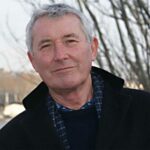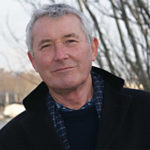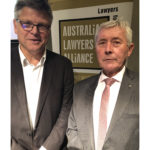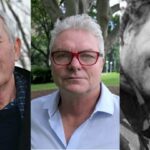Forget Closed Court Orders, Now Collaery Can’t Even See Evidence Against Him
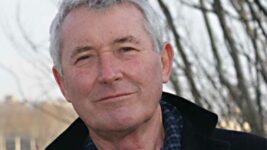
The Coalition government’s pursuit of barrister Bernard Collaery has crept up another notch on the Orwellian scale, as, last week, ACT Supreme Court Justice David Mossop ruled that the attorney general can use “court only” evidence against him, meaning he and his legal team cannot view it.
Collaery is being prosecuted for his role in exposing a Howard government-approved 2004 ASIS spying operation that saw the agency bugging the cabinet offices of the East Timorese government.
The purpose of the undertaking was so Australia and its corporate cronies could gain the upper hand in oil and gas treaty negotiations with the then poorest nation in the world.
As it stands now, secret evidence submitted by the federal attorney general will remain undisclosed to the defence, and a government-appointed special counsel will view it on Collaery’s behalf and advocate for him in this regard.
This decision comes not long after Collaery had a major victory, when he challenged the closed court order that’s been placed on his case. This resulted in the ACT Court of Appeal ruling last October that six identified matters that were set to be withheld from the public, will now be open to its scrutiny.
Political prosecutions
Now known as Witness K, a former ASIS agent went to the Inspector General of Intelligence and Security in 2008, to discuss a workplace promotion dispute, which involved his divulging that he’d been in charge of the East Timor bugging operation.
The IGIS told K to consult with ASIS-approved lawyer Collaery on his matters of concern.
Collaery then determined the spying operation was illegal under ACT law. And in 2013, as K was about to testify on behalf of East Timor at the Permanent Court of Arbitration in the Hague, with Collaery providing counsel, ASIO and AFP agents raided both men’s Canberra premises.
However, it wasn’t until 2018, under newly incumbent attorney general Christian Porter that the Commonwealth moved to prosecute the pair. And the then AG used never before national security powers to ensure that much of their trials would be closed to the public.
K and Collaery were both charged with conspiracy to reveal classified information, contrary to section 39 of the Intelligence Services Act 2001 (Cth).
And Witness K eventually decided to plead guilty and last year was given a three-month suspended sentence and placed on a 12 month good behaviour bond.
Authoritarian creep
“I gave frank and fearless advice, and the response was I’ve been charged with conspiracy,” Collaery told Sydney Criminal Lawyers in early 2020. “As far as I am concerned, the charge against K means that it’s a crime to report a crime. Think about it. That’s Australia at present.”
The prosecution of K and Collaery has coincided with a series of events that indicate an authoritarian shift in the governance of this country.
These include the prosecution of former ADF lawyer David McBride, the secret trialling of ex-intelligence agent Witness J and the mid-2019 AFP press raids.
The Supreme Court’s determination to permit secret evidence to be withheld from Collaery and his legal team is yet another sign of this general trend.
Indeed, current attorney general Michaelia Cash had her lawyers arguing for this outcome straight after Collaery won the right to have certain aspects of the secrecy shrouding his trial removed. And the top lawmaker is now appealing to the High Court to have this ruling overturned as well.



